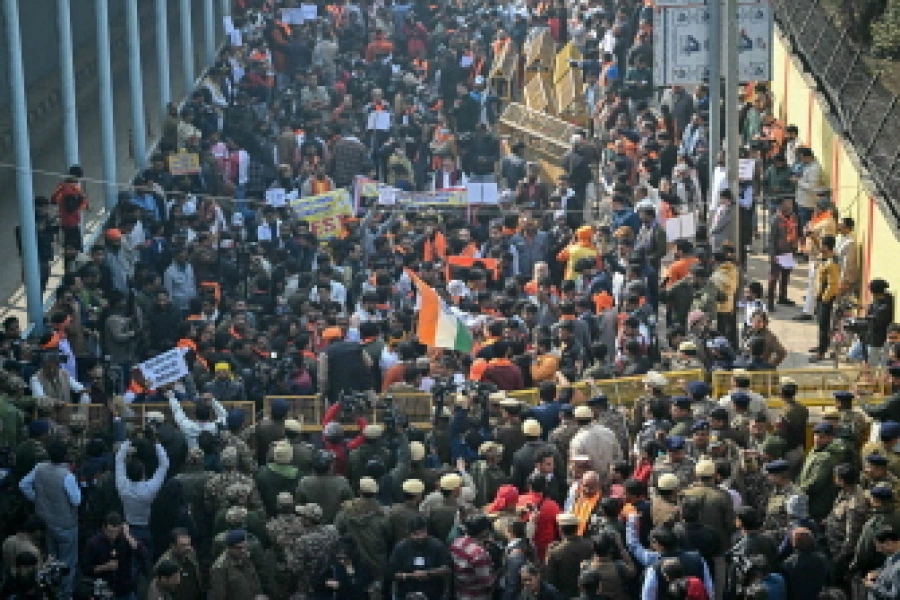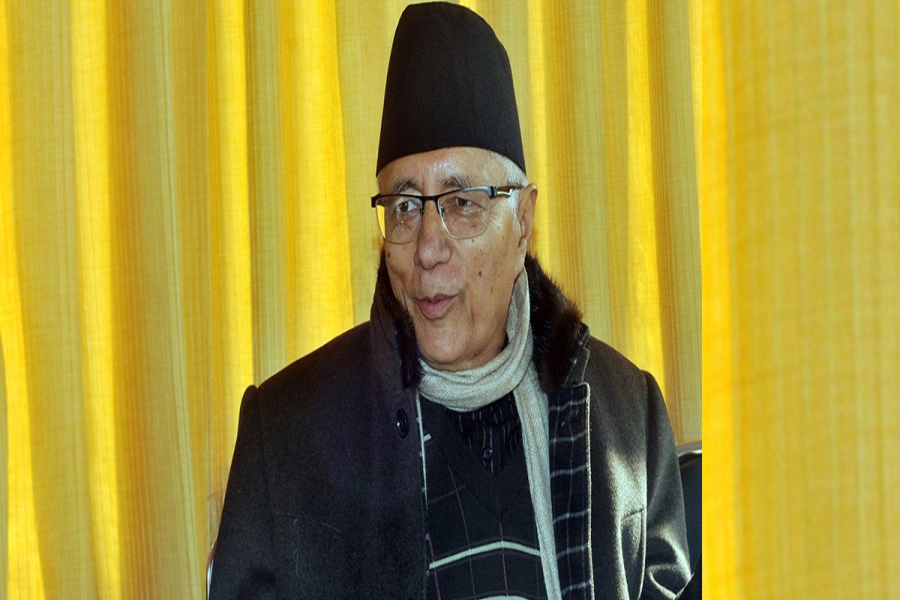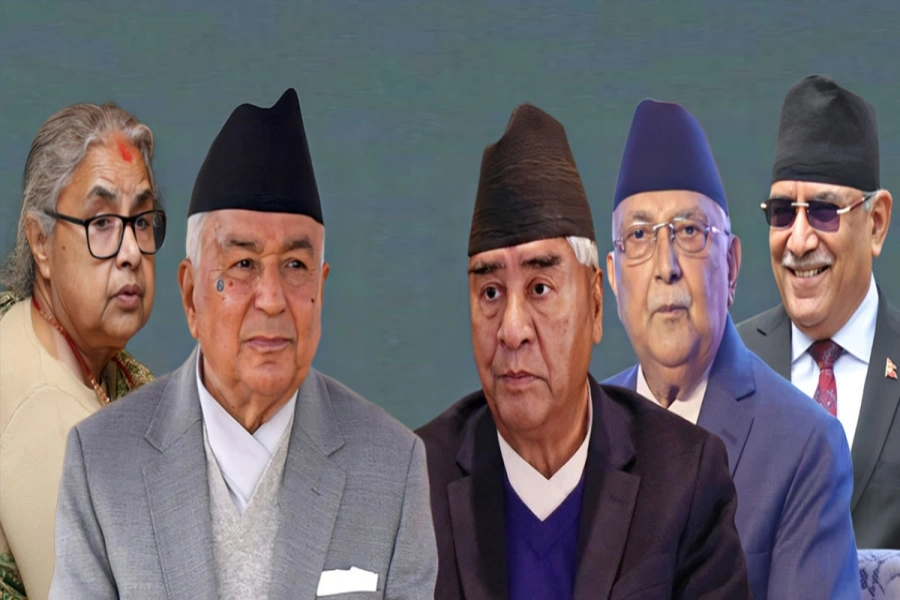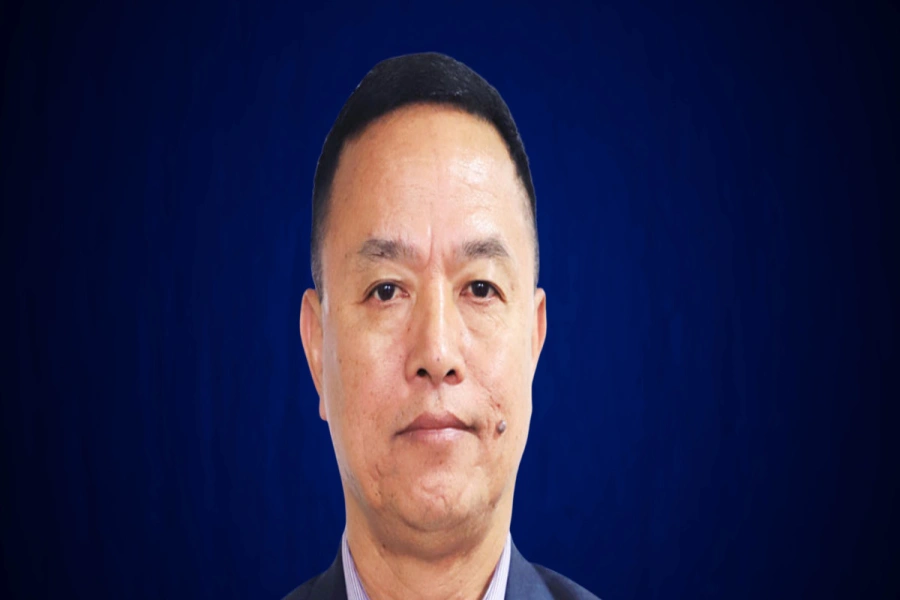KATHMANDU, Feb 9: Brushing aside suggestions made by a section of people in Nepal that all the development assistances of the US government to Nepal are guided by geopolitical consideration, visiting USAID Administrator Samantha Power said on Wednesday that the investment made by the US government in Nepal is not the product of geopolitics but a testimony to its enduring commitment and partnership to help Nepal prosper and have better life for its people.
Addressing a media query at a press conference organized in Kathmandu on Wednesday, Administrator Power said that the suggestions that US support to Nepal is guided by geopolitical consideration stems mainly from the misinformation and the elements that try to seek polarization and divide people.
“The investment by the United States in Nepal is not the product of any geopolitical dynamics. It is the product of the United States’ commitment proven decade after decade after decade to the welfare of the people of this country. And we get a lot of this partnership, friendship as well,” she said.
Stating that the US-Nepal partnership in a number of areas has continued despite profound changes in the world’s geopolitics in the past, Administrator Power said that the history of wide-ranging partnership that the two countries have engaged in the past 75 years speaks for itself.
USAID administrator Samantha Power arriving in Nepal today

“There is no question, of course, that geopolitics shift. They shifted, you know, during the cold war; they shifted after the cold war. Now, there are different geopolitical dynamics. It serves the backdrop to anything that any country does anywhere in the world. But I would focus on the work we do together, the impact of that work…,” she said.
In addition to the $500 million Millennium Challenge Corporation (MCC) compact agreement to build a cross-country transmission line and upgrade roads, the US government last year reached a $659 million development objective agreement with Nepal. On Tuesday, Administrator Power announced up to $58.5 million to advance democratic progress in Nepal. A section of people including politicians have been suggesting that these US investments in Nepal are guided by geopolitical considerations.
There was even a street protest against the MCC Compact Agreement last when the government was preparing to ratify it through the parliament. “I think the depth, length and the scope of the US-Nepali relationship speaks to the enduring friendships and partnership between our two people and certainly from the US side our enduring commitment to dignity and the opportunity that every Nepali person seeks for himself and for development,” she further said.
Administrator Power, who arrived in Kathmandu on Tuesday on a three-day visit to Nepal, said that the evidence of their concern for and commitment to Nepali people for their own sake is 75 years worth of evidence to that effect. “…the fact that more and more we do get this question …that the question marks have been raised. You know I think some of that stems from--a problem we deal with in the United States as well–, which is rampant misinformation. All around the world, not just in Nepal, more and more polarization, you know people sometimes find issues that divide us rather than those that unite us. And, then you know, sometimes people get confused,” she added.
Administrator Power said that the increased support of the US government to Nepal is also guided by the historical responsibility to help countries like Nepal. “We believe in the United States that it is in the long term interests of American people for democracy, democratic institutions to be stronger for citizens to be able to access social services, health care, education for everyone in the world for the next generation to be better off than the generation before,” she said. “And now, because of climate change we also feel historical responsibility because we in the United States have been a major emitter of carbon. And, countries like Nepal that have very little to contribute to global warming are feeling the effects of that. So, that too gives us a sense of responsibility to make these investments.”
Power, who is wrapping up her Nepal visit on Thursday, held a meeting with Prime Minister Pushpa Kamal Dahal, Deputy Prime Minister and Finance Minister Bishnu Poudel, Foreign Minister Dr Bimala Rai Poudyal, civil society leaders. She also visited a few places in Kathmandu Valley to see the progress of US-funded projects during her stay in Nepal.
Addressing a press conference, Administrator Power said that she had a productive discussion with Prime Minister Dahal. She mentioned that she had raised the issue of taxation, regulatory environment that is hindering foreign direct investment in Nepal. The issues of promoting participation of the private sector in development endeavors and promoting women entrepreneurship in Nepal were also among the issues touched upon during the discussion. On the occasion, Prime Minister Dahal had expressed commitment to promote democracy and strengthen democratic institutions in Nepal. He also promised to bring the ongoing peace process to a logical end during his term as the prime minister.









_20231204074227.jpg)





























